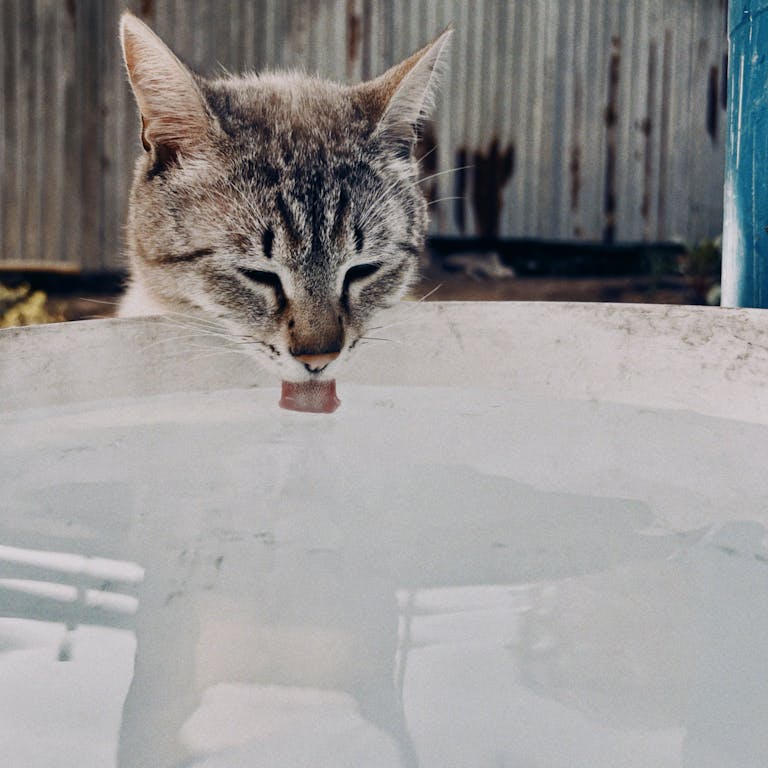Do Cats Recognize Their Names? What the Science Says

Do Cats Recognize Their Names? What the Science Says
Last updated: June 2025 | Reading time: 12 minutes
In This Article:
- Why Do We Wonder If Cats Recognize Their Names?
- Do Cats Actually Understand Their Names?
- How Can You Tell If Your Cat Responds to Their Name?
- What Does Science Say About Cats and Name Recognition?
- Can You Train Your Cat to Respond to Their Name?
- Our Top Picks: Toys and Treats to Strengthen Name Recognition
- Frequently Asked Questions
- Wrapping Up: Key Takeaways About Cats and Their Names
- Author Bio
- Name Recognition Checklist for Cat Owners
Why Do We Wonder If Cats Recognize Their Names?
If you’re a cat parent like me, you’ve probably found yourself calling your kitty’s name only to be met with a blank stare or a slow blink. It’s easy to feel like cats just ignore us, right? But over my 10+ years with cats, I’ve noticed some subtle signs that suggest they might be tuning in more than we realize.
What You’ll Learn:
- How cats perceive and respond to their names
- The science behind feline name recognition
- Tips and tricks I’ve used to help my cats respond better
- Which products support training and bonding
- Answers to common questions about cats and their names
Quick Answer:
Cats can recognize their names, but unlike dogs, they may choose when or if to respond. Studies show cats distinguish their names from other words, especially when associated with positive experiences, but their response depends on individual personality and context.
Do Cats Actually Understand Their Names?
Yes, cats can recognize their names. But understanding is a bit different from what we expect with dogs. When I brought my first cat home, I noticed she perked up when I said her name during meal times but often ignored it otherwise.
Cats learn to associate sounds — like their names — with outcomes, often based on how consistently their name is linked to attention or food. But they’re less about obedience and more about choice.
Pro tip: Use your cat’s name consistently in positive moments to build a strong association.
Suggested image: A cat gazing attentively at owner calling its name.
Alt text: A gray tabby cat looking up at its owner who is saying its name.
How Can You Tell If Your Cat Responds to Their Name?
It can be tricky to judge since cats don’t always come running. Here’s what I watch for:
- Their ears twitch or rotate towards me.
- They lift their head or look in my direction.
- They may meow back or move closer.
- Some cats even blink slowly or rub against me.
One of my cats, Luna, practically ignores her name if she’s busy but will come immediately if I call her when she’s hungry or playful.
Pro tip: Try calling your cat’s name in different tones and observe subtle reactions, not just running over.
What Does Science Say About Cats and Name Recognition?
Researchers have delved into this question, and the results are fascinating.
A 2019 study published in Scientific Reports by Dr. Atsuko Saito and colleagues demonstrated that cats do differentiate their names from other words, even when uttered by strangers. They measured cats’ ear and head movements, as well as vocal responses, to their names versus other similar-sounding words.
Working with veterinarians and feline behaviorists over the years, I’ve learned that cognitive abilities in cats are often underestimated. Unlike dogs, cats evolved as solitary hunters, so their responsiveness to humans is less about obedience and more about individual motivation.
Another interesting insight: cats are more likely to respond when their names precede something enjoyable (like meals or petting).
Can You Train Your Cat to Respond to Their Name?
Absolutely. While not every cat will come running, you can train your feline friend to recognize and respond to their name with patience.
Here’s a simple 5-step method I’ve used with my cats:
- Choose or keep a short, distinct name: This makes it easier for cats to distinguish.
- Say the name clearly: Use a calm, friendly tone to avoid startling your cat.
- Immediately offer something positive: Like a treat, affection, or playtime.
- Repeat the process consistently: Daily, during calm and happy moments.
- Avoid calling your cat for negative experiences: Never use their name when disciplining.
Pro tip: Pair name calling with clicker training or favorite treats to speed learning.
Suggested image: Owner giving a treat and softly calling a cat’s name.
Alt text: Owner holding treat while calling cat’s name in a gentle voice.
Our Top Picks: Toys and Treats to Strengthen Name Recognition
Here are some of my favorite products that make training and bonding easier:
1. Hero Cat Clicker Trainer Kit
Best for: Training with positive reinforcement
Why we love it: Easy to use, durable, works for all cats
Best for: Cat owners new to training
Consider if: You want to speed up name recognition and other commands
[Check Price on Retailer]
2. Greenies Feline Dental Treats
Best for: Rewarding good behavior
Why we love it: Cats love the taste, supports dental health, small size perfect for training
Best for: Cats with a sweet tooth or in need of dental care
Consider if: Your cat needs delicious motivation
[Check Price on Retailer]
3. PetSafe SmartyKat Interactive Laser Toy
Best for: Associating name calling with play
Why we love it: Engaging and stimulates instincts, encourages response to cues
Best for: Energetic cats or those reluctant to come when called
Consider if: Your cat loves chasing lights and games
[Check Price on Retailer]
Frequently Asked Questions
Do cats respond better to certain types of names?
Cats tend to respond better to short, sharp-sounding names, especially those with hard consonants like “K” and “T.” Avoid long or overly complicated names as they’re harder to recognize.
How long does it take to train a cat to come when called?
Training can take from a few weeks to several months, depending on your cat’s personality and consistency in training sessions.
Can kittens recognize their names earlier than adult cats?
Kittens can start recognizing their names as early as 7-8 weeks old because they’re in a critical learning phase, but adults can learn too, although patience is key.
What if my cat ignores their name completely?
If your cat seems indifferent, try changing your tone or offering more enticing rewards. Remember, cats respond on their terms, so don’t force interactions.
Is it harmful to call cats repeatedly without positive reinforcement?
Repeated name calling without positive outcomes can make cats tune out or even become stressed, so always pair name calls with something enjoyable.
Wrapping Up: Key Takeaways About Cats and Their Names
- Cats can recognize their names but might choose when to respond.
- Positive associations like treats or petting boost recognition.
- Training consistency and tone matter more than repetition alone.
- Short, distinct names are easier for cats to identify.
- Individual cat personalities play the biggest role in responsiveness.
If you tried calling your cat’s name today, share your experience in the comments! I’d love to hear if my tips helped your feline friend tune in a little more.
Related Reading:
- [How to Train Your Cat with Clicker Training]
- [Understanding Feline Body Language]
- [Best Healthy Treats for Cats in 2025]
I’ll be updating this guide regularly with the latest research and tips—so stay tuned!
Author Bio
Hi, I’m Jamie—a passionate cat parent and pet blogger with over 10 years of experience sharing real-life tips about feline care and behavior. From shelter kittens to senior cats, I’ve learned a lot about what makes cats tick and how we can better communicate with our whiskered companions. When I’m not writing, you’ll find me cuddling with my two rescue cats or testing out new toys to share with fellow cat lovers.
Name Recognition Checklist for Cat Owners
- [ ] Use a short, clear, and distinct name
- [ ] Say their name in a calm and friendly tone
- [ ] Always follow name calls with positive rewards (treats, petting)
- [ ] Avoid calling your cat for negative reasons
- [ ] Be consistent and patient during training sessions
- [ ] Observe subtle body language cues, not just running over
- [ ] Use interactive toys or clickers to make training fun
- [ ] Adjust rewards based on what your cat loves most (food, play, affection)
I hope this guide helps you see your cat’s name in a new light—and maybe even get a few more “hellos” in return!






